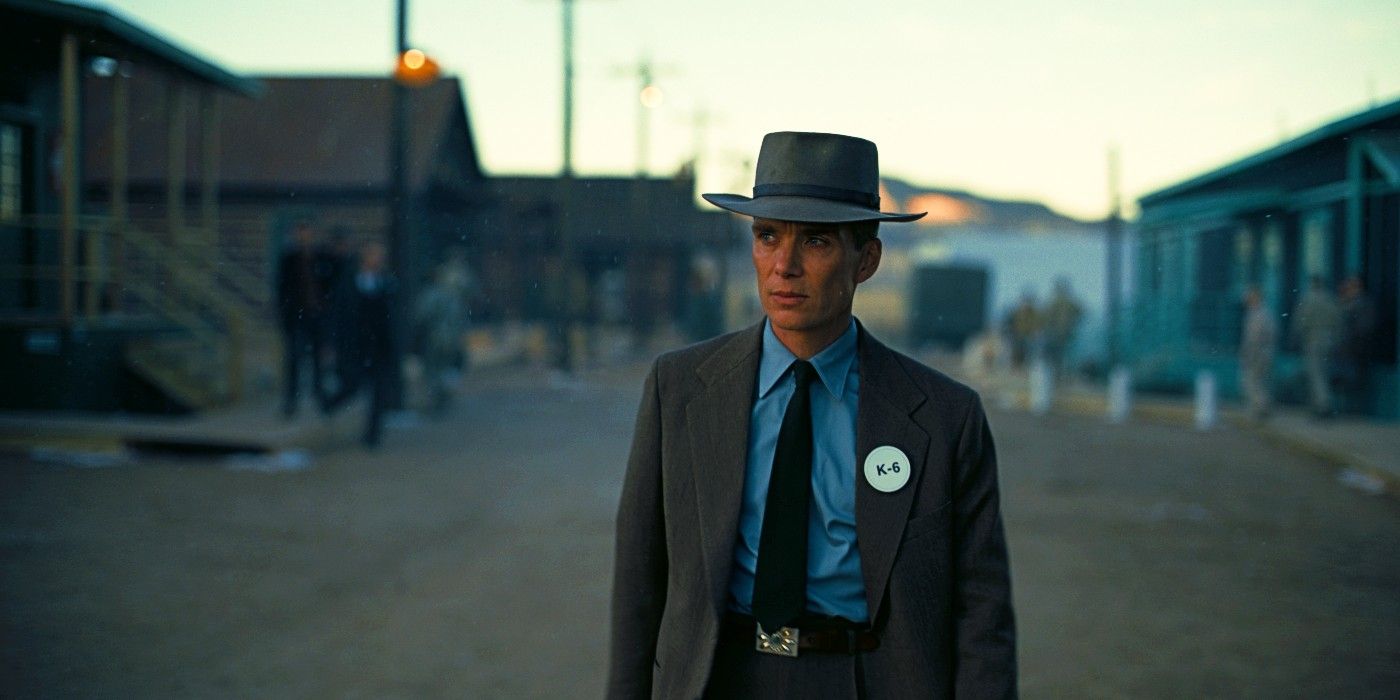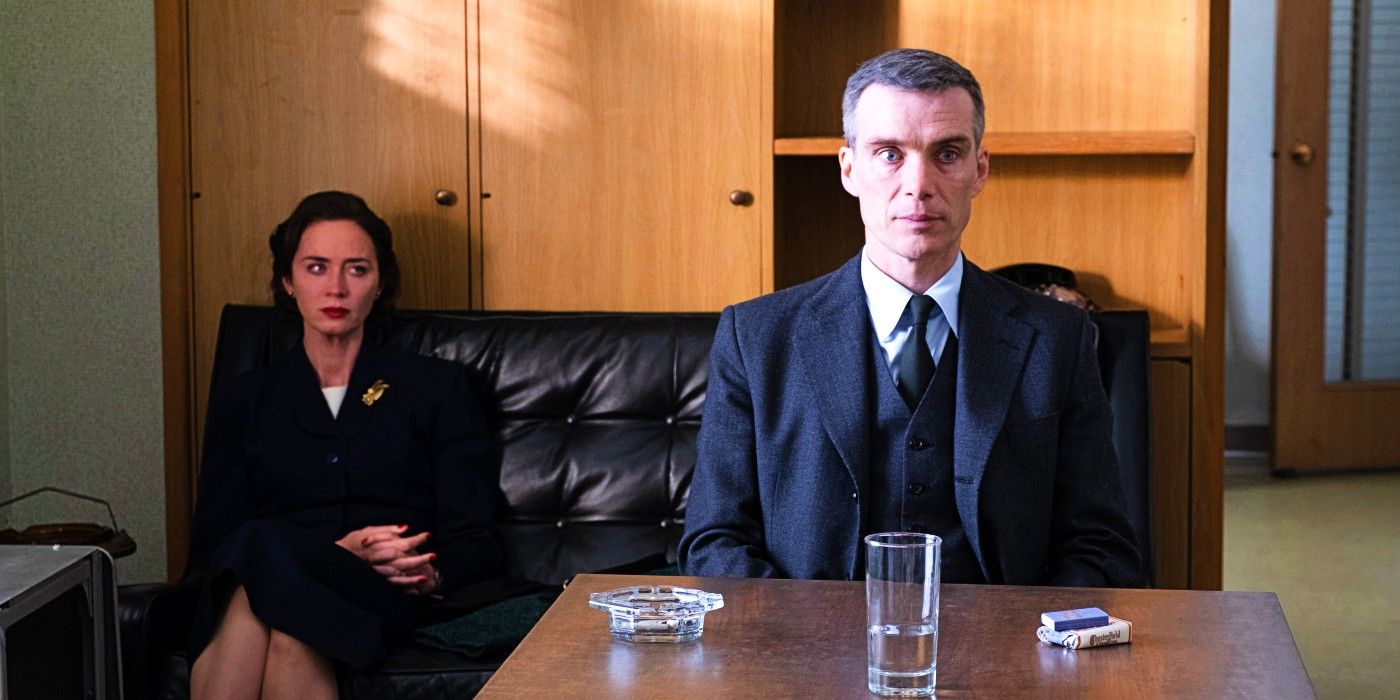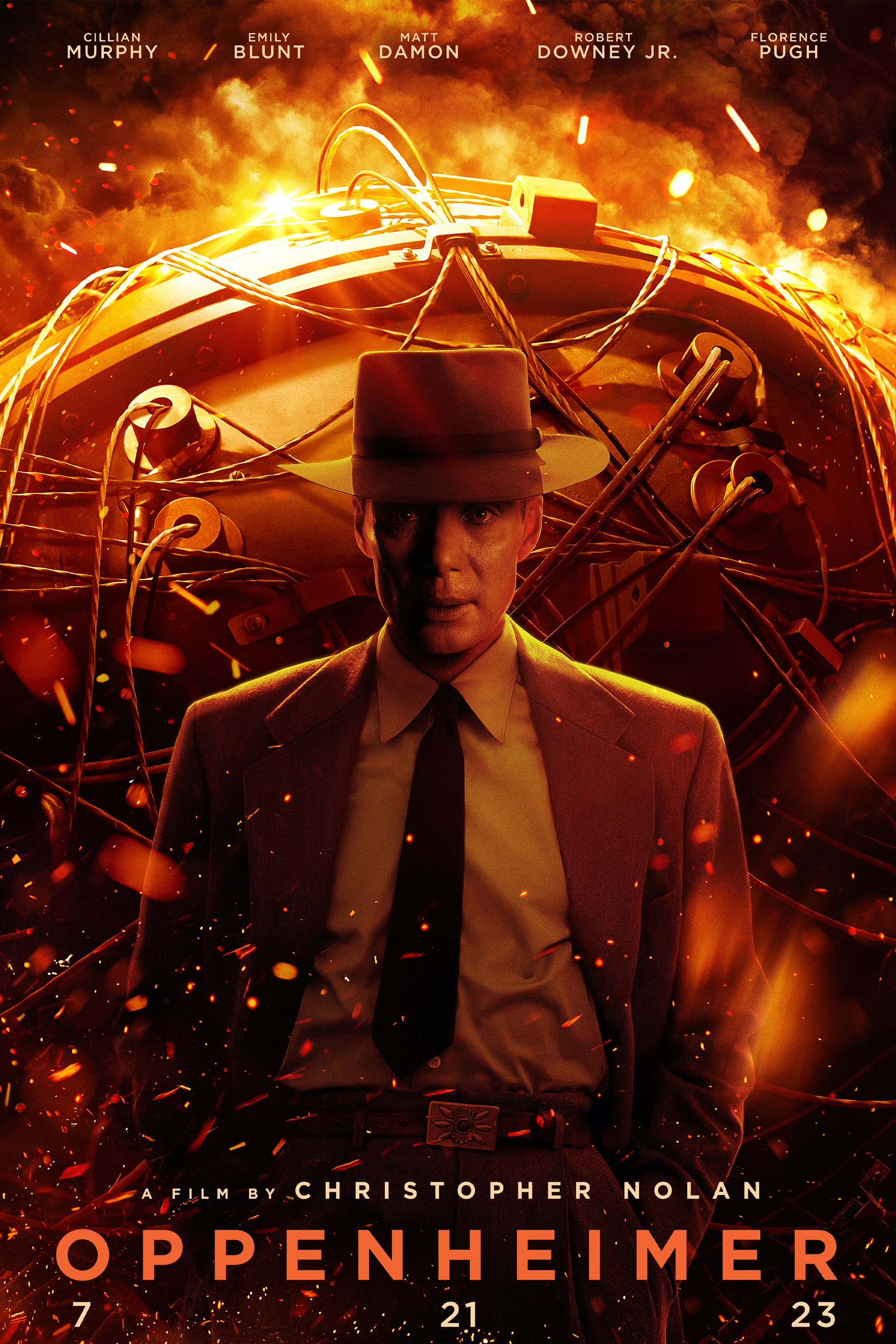Editor's Note: This piece was written during the 2023 WGA and SAG-AFTRA strikes. Without the labor of the writers and actors currently on strike, the movie being covered here wouldn't exist.
Christopher Nolan's films often feel like puzzles he has solved, and, as he shows us how the pieces come together, we experience a process of discovery with him. In his latest, the puzzle isn't so much the film itself, but the man at its center, the Father of the Atomic Bomb J. Robert Oppenheimer. Cillian Murphy gives the performance of a lifetime in Oppenheimer, fearlessly diving into the torn psyche of a man who realizes what he has unleashed upon the world, but can't help but feel fascinated by his creation. It is an intricately woven character study, approaching Oppenheimer's life from three distinct angles at a breathless pace that doesn't stop until Nolan reveals the devastation left in the man's wake and the future he still fears.
Based on the book American Prometheus by Kai Bird and Martin J. Sherwin, Nolan wrote the script for Oppenheimer in the first person, taking his preoccupation with the subjective point of view to new creative heights. Oppenheimer is so firmly within its title character's head that the film is jarring at first as it shifts between color (Oppenheimer's perspective) and black and white (the world as seen through the lens of Robert Downey Jr.'s Lewis Strauss, who served as the chairman of the U.S. Atomic Energy Commission). Downey Jr. may very well steal the show as Strauss, as he manages to upstage just about everyone in Oppenheimer's stacked cast. Over the various timelines, Emily Blunt, Florence Pugh, Matt Damon, Josh Hartnett, Rami Malek, Casey Affleck, Benny Safdie, Alden Ehrenreich, and more appear in small but substantial roles that serve to flesh out the world Nolan depicts. As they converge, the director crafts a devastating portrait of man's hubris in the face of great change, bringing forth some of the most startling and horrifying images of his career.
Oppenheimer operates much like the man at the center of it. It is brash, moving at a pace that pays no mind to whether you're keeping up. The actual Oppenheimer was known to be charismatic, and Murphy taps into this, but, as if his performance is moving backward and forward through time, the weariness of Oppenheimer in the final hour lingers over the actor like a specter throughout the film's nearly three-hour run. Oppenheimer knows what's coming and, like the atom, is split in two, a man pushing forward at the excitement of innovation, of creation, and a man who discovers a level of power that will change the course of history and could ultimately destroy it. That Oppenheimer knows this early on doesn't deter him. The apocalypse haunts him, but it doesn't quite scare him. He stares directly into its bright ending, the hint of a smile between his lips as they are parted in awe.
Oppenheimer's fragmented structure gives way to some of Nolan's most distinctively discomfiting imagery in years, including one scene between Murphy, Pugh, and Blunt that speaks to the depth in which we are in Oppenheimer's fractured psyche. These feelings of discomfort give way to abject horror, moments that are compounded by Nolan's symphony of chaos — sparks colliding, atoms splitting, feet stomping, stars imploding, desert dust sweeping against the landscape. It's a crescendo of all his stylistic flourishes and, in one fell swoop, Nolan brings about devastation and heart-pounding excitement. He is daring us to look at the images he's created and not be as horrified as we should be. There will certainly be horror — one sequence, in particular, is the most harrowing of Nolan's career — but horror soon gives way to despair and the director brings it home in a final hour that is as devastating as it is illuminating.
Blunt, who stars as Oppenheimer's wife Kitty, gives a career-best turn as Nolan brings various threads to a head. Like her husband, Kitty is both fascinated and terrified by what man can create. Her husband, who has looked the apocalypse in the face, is a shell of a man fighting to save a world that is doing everything it can to exorcise him. He distracts himself with women — Pugh makes every second of her time onscreen count and another tryst has grave consequences that ripple through the film's final act — but it's Kitty who is by his side in the end and Blunt is quietly revelatory in the role. The real ending of Oppenheimer, though, comes when Nolan allows himself to look forward and bring some of the incendiary imagery we've only seen in flashes to its devastating finale.
The process of discovery in Oppenheimer goes down many paths. Nolan may have the science down pat — experts have praised his take on everything from interstellar travel to the moral dilemma of the scientist at the center of this film — but it's man that may remain an even greater mystery for the director. "Fission," a title card revealed at the onset of Oppenheimer, is the process in which a neutron slams into an atom, causing it to split in two. Fission is exactly what happens to Nolan's subject: Oppenheimer's fascination with discovery collides with the horrifying realization of what raw power can do to a man and the world around him.
Nolan has been criticized for what some consider sterile filmmaking, asserting that he is more focused on the technical components of his movies than the human ones. Oppenheimer marries both — through intimate close-ups, Murphy communicates personal devastation with a dawning realization that he has created a new world. Nolan films heated technical conversations and devastating domestic squabbles like thrilling action scenes, imbuing each word, each facial tic with a sense of impending doom. Both strikingly personal and monumental in scale, Oppenheimer may be Nolan's greatest achievement. Creation does not come without consequences and Nolan wants to remind us that we are still feeling the repercussions of one man's designs decades after they've been unleashed upon the world.
Oppenheimer debuts in theaters on Friday, July 21. The film is 180 minutes long and rated R for some sexuality, nudity and language.





